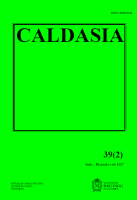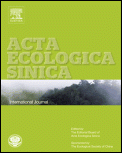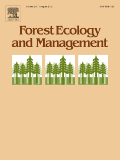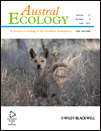
CALDASIA
Scope & Guideline
Bridging Research and Innovation in Biological Sciences
Introduction
Aims and Scopes
- Biodiversity Assessment:
The journal focuses on the assessment and documentation of biodiversity, particularly in tropical and subtropical regions, emphasizing the importance of cataloging species and understanding their ecological roles. - Conservation Biology:
Research on conservation strategies, threats to biodiversity, and the effectiveness of protected areas is a core aim, addressing the urgent need for biodiversity preservation in rapidly changing environments. - Ecological Interactions:
Studies examining species interactions, community dynamics, and ecological processes are central to the journal's scope, providing insights into the functioning of ecosystems. - Ethnobiology and Traditional Knowledge:
The journal also highlights the relationship between local communities and biodiversity, including the use of wildlife and plants in traditional practices, which is crucial for sustainable management. - Applied Ecology:
Research that translates ecological knowledge into practical applications for environmental management and restoration is emphasized, including studies on habitat restoration and species reintroduction.
Trending and Emerging
- Climate Change Effects:
An increasing number of studies are exploring the impacts of climate change on biodiversity, species distribution, and ecosystem services, underscoring the urgent need to understand and mitigate these effects. - Urban Ecology:
Research addressing the dynamics of biodiversity in urban settings is gaining traction, reflecting a growing recognition of the importance of urban ecosystems and their management for conservation. - Citizen Science Contributions:
There is a notable rise in studies utilizing citizen science data to enhance biodiversity monitoring and research, indicating a trend towards collaborative approaches in ecological research. - Genetic Diversity and Conservation Genetics:
Emerging themes include a focus on genetic diversity and conservation genetics, which are essential for understanding population dynamics and informing conservation strategies. - Restoration Ecology:
Research on ecological restoration practices, including the effectiveness of various restoration techniques in different ecosystems, is increasingly featured, highlighting the importance of restoring degraded habitats.
Declining or Waning
- Invasive Species Research:
Research focusing on invasive species and their impacts on native biodiversity has seen a decrease, possibly indicating a shift towards addressing more immediate conservation concerns or other ecological studies. - Historical Ecology:
There seems to be a waning interest in historical ecology studies that analyze past ecological conditions and species distributions, as more emphasis is placed on contemporary biodiversity assessments and conservation efforts. - Agricultural Impact Studies:
While still relevant, studies specifically examining the impacts of agriculture on biodiversity have become less frequent, suggesting a potential shift towards more holistic ecosystem management approaches.
Similar Journals

Neotropical Biodiversity
Empowering scientists to understand and preserve Neotropical life.Neotropical Biodiversity is a prominent journal dedicated to advancing our understanding of biodiversity and ecological dynamics within the Neotropical region. Published by TAYLOR & FRANCIS LTD in the United Kingdom, this Open Access journal has been providing unrestricted access to research findings since 2015, fostering collaboration and knowledge sharing among the global scientific community. With an emphasis on innovative research in Ecology, Ecology, Evolution, Behavior and Systematics, and Global and Planetary Change, it has earned a reputation for excellence, currently holding a Q3 category in its field. As of 2023, the journal ranks in the 37th percentile for Environmental Science (Ecology) and in the 36th percentile for Agricultural and Biological Sciences (Ecology, Evolution, Behavior and Systematics), making it a valuable resource for researchers, professionals, and students interested in understanding and preserving biodiversity in one of the world's most diverse ecosystems. We invite you to explore the cutting-edge research published in Neotropical Biodiversity and contribute to the ongoing dialogue for environmental sustainability and ecological resilience.

Acta Ecologica Sinica
Exploring the depths of ecological science for global impact.Acta Ecologica Sinica, published by Elsevier, is a prominent journal in the field of ecology, with a strong focus on fostering understanding in ecological principles and their applications. Established in China, this journal holds an impressive Q2 categorization in both Ecology and Ecology, Evolution, Behavior and Systematics as of 2023, positioning it within the top tier of ecological research. With its Scopus rankings placing it in the 81st and 78th percentiles in relevant ecological domains, it serves as a vital platform for researchers and practitioners to disseminate findings that promote ecological sustainability. Although it operates under a traditional access model, its significant impact is underscored by its systematic convergence of key ecological inquiries across multiple years (2006-2008, 2014, 2017-2023). By engaging with the latest empirical studies, theoretical advancements, and methodological innovations, Acta Ecologica Sinica is indispensable for scholars dedicated to advancing ecological knowledge and addressing environmental challenges.

NEW ZEALAND JOURNAL OF ECOLOGY
Fostering Innovative Research in Ecological ScienceNEW ZEALAND JOURNAL OF ECOLOGY, published by the New Zealand Ecological Society, stands as a premier platform for disseminating research in the field of ecology, with a notable impact factor reflected in its Q2 ranking in multiple ecology categories for 2023. Established in 1980 and actively publishing since 1982, this journal provides a vital resource for ecologists and environmental scientists, fostering the exchange of innovative ideas and methodologies. The journal covers a wide range of ecological topics, ensuring a comprehensive overview of the current trends and research developments in both ecological theory and practical applications specific to New Zealand and beyond. Researchers, professionals, and students will find in this journal an authoritative source to advance their understanding of ecological dynamics and contribute to the growing field of ecological science. The journal is accessible to the community without open access, providing critical insights that underpin the ecological landscape of New Zealand and inform sustainable practices worldwide.

Global Ecology and Conservation
Advancing ecological knowledge for a sustainable future.Global Ecology and Conservation, published by Elsevier, stands as a premier open-access journal dedicated to advancing the field of ecology and conservation science. Since its inception in 2014, the journal has facilitated the dissemination of high-quality research, fostering critical dialogue on ecosystem management, biodiversity preservation, and sustainability practices across the globe. With a remarkable ranking within the top quartiles (Q1) in various categories including Ecology, Evolution, Behavior and Systematics, and Nature and Landscape Conservation, it is positioned among the leading resources for researchers and professionals alike. The journal has garnered a notable impact, ranking #65 out of 721 in Ecology, and houses articles that are vital to understanding and addressing the pressing environmental challenges of our time. Available in an open-access format, researchers can freely access and share vital findings, promoting a collaborative approach to ecological research. Global Ecology and Conservation is not just a publication; it is a critical tool for innovation and advocacy in conservation, poised to inspire the next generation of environmental stewards.

Nature Conservation Research
Empowering global collaboration in nature preservation.Nature Conservation Research is a prominent open-access journal that has been dedicated to advancing the field of conservation science since its inception in 2016. Published by the SARANSK FOND PODDERZKI & RAZVITIA ZAPOVEDNYH in the Russian Federation, this journal serves as a vital platform for researchers, professionals, and students alike, providing critical insights into ecological and environmental issues. With an impressive impact factor and ranked in the second quartile across multiple categories—including Agricultural and Biological Sciences, Earth and Planetary Sciences, Ecology, and Nature and Landscape Conservation—Nature Conservation Research stands at the forefront of impactful scientific discourse. The journal not only aims to disseminate high-quality research findings but also seeks to foster collaboration and innovation in conservation practices globally. By ensuring open access to its content, it promotes widespread dissemination of knowledge, crucial in the fight against biodiversity loss and environmental degradation. Researchers and practitioners contributing to the journal will find themselves at the convergence of science and conservation efforts, paving the way for sustainable ecosystem management.

FOREST ECOLOGY AND MANAGEMENT
Transforming Insights into Action for Forest HealthFOREST ECOLOGY AND MANAGEMENT is a premier peer-reviewed journal dedicated to the integral study of forest ecosystems and their management, published by Elsevier in the Netherlands. With an impactful presence in the field, this journal boasts a prestigious Q1 ranking in multiple categories, including Forestry, Management, Monitoring, Policy and Law, and Nature and Landscape Conservation as of 2023. It addresses key issues relevant to sustainable forest practices, conservation strategies, and environmental monitoring, making it a vital resource for researchers, practitioners, and policymakers alike. The journal is indexed with an impressive Scopus rank, placing it among the top tier of titles in Agricultural and Biological Sciences and Environmental Science. While it does not offer Open Access options, its rigorous review process and high visibility make it essential for those seeking to stay abreast of the latest findings and trends in forest ecology and management. Published continuously since 1976, FOREST ECOLOGY AND MANAGEMENT aims to foster interdisciplinary collaboration and advance knowledge critical to the stewardship of forest resources in an ever-changing global landscape.

NORTHWEST SCIENCE
Empowering researchers with vital insights from the Northwest.NORTHWEST SCIENCE, published by the NORTHWEST SCIENTIFIC ASSOCIATION, serves as a vital resource for researchers and professionals in the fields of ecology, evolution, and systematics. With an ISSN of 0029-344X and an E-ISSN of 2161-9859, this journal has been disseminating valuable scientific insights since its inception in 1975 and continues to do so into 2024. Although currently positioned in the Q4 quartile for its category, it plays a crucial role in advancing the understanding of ecological and biological sciences, reflecting a diverse range of studies and methodologies. Researchers will find the journal particularly appealing due to its emphasis on regional studies and their implications on a global scale. While NORTHWEST SCIENCE is not an open-access publication, it provides significant contributions to the academic dialogue within its discipline, making it an essential addition to the library of any dedicated researcher, student, or professional in the environmental sciences.

Journal of Wildlife and Biodiversity
Bridging science and conservation for all.Journal of Wildlife and Biodiversity, published by Arak University in Iran, is an Open Access journal that has been contributing to the fields of wildlife science and biodiversity since its inception in 2017. With an E-ISSN of 2588-3526, this journal serves as a vital platform for researchers, professionals, and students alike, dedicated to disseminating significant findings related to animal sciences, ecology, and environmental conservation. Despite its current Q4 ranking in various categories (Animal Science, Ecology, and Nature and Landscape Conservation) according to the 2023 metrics, the journal's commitment to advancing knowledge in wildlife and biodiversity remains unwavering. Although the journal's Scopus coverage has been discontinued since 2024, it continues to cater to a wide audience by promoting innovative research and fostering collaborations in the academic community, ultimately aiming to enhance understanding and conservation strategies for wildlife and their habitats.

AUSTRAL ECOLOGY
Bridging knowledge and innovation in ecological studies.AUSTRAL ECOLOGY, published by WILEY, is a key journal in the field of ecology, with a focus on ecological research from the Southern Hemisphere and beyond. With an ISSN of 1442-9985 and an E-ISSN of 1442-9993, this journal serves as a vital platform for the dissemination of significant findings related to ecology, evolution, behavior, and systematics. Currently holding a commendable Q2 ranking in both Ecology and Ecology, Evolution, Behavior and Systematics categories as of 2023, AUSTRAL ECOLOGY is recognized for its rigorous peer-review process and impactful research contributions, as evident from its Scopus rankings in the 56th percentile for both Agricultural & Biological Sciences and Environmental Science. Researchers, professionals, and students engaged in ecological studies can benefit from the journal's open access options, enabling wider accessibility to critical ecological insights and advancements in the field. Established in 1981, with an evolving legacy through its converged years from 1996 to 2024, AUSTRAL ECOLOGY remains committed to advancing ecological knowledge and fostering a deeper understanding of ecological dynamics in our ever-changing environment.

GAYANA BOTANICA
Fostering dialogue in the heart of plant science.GAYANA BOTANICA is a prominent academic journal that specializes in the fields of Ecology, Horticulture, and Plant Science, published by EDICIONES UNIV, CONCEPCION in Chile. Established in 1981, this journal has become a vital resource for researchers and professionals seeking to advance their knowledge and contribute to the understanding of botanical sciences, offering a diverse range of articles that explore the ecology of plants, horticultural practices, and innovative plant science methodologies. Although it currently holds a Q4 quartile ranking in its categories, the journal’s commitment to disseminating valuable scientific findings continues to strengthen its relevance in the field. With its focus on promoting original research and fostering dialogue among scholars, GAYANA BOTANICA plays an essential role in supporting the global scientific community. We invite researchers, academics, and students to engage with its content and explore advancements that are shaping the future of plant sciences.